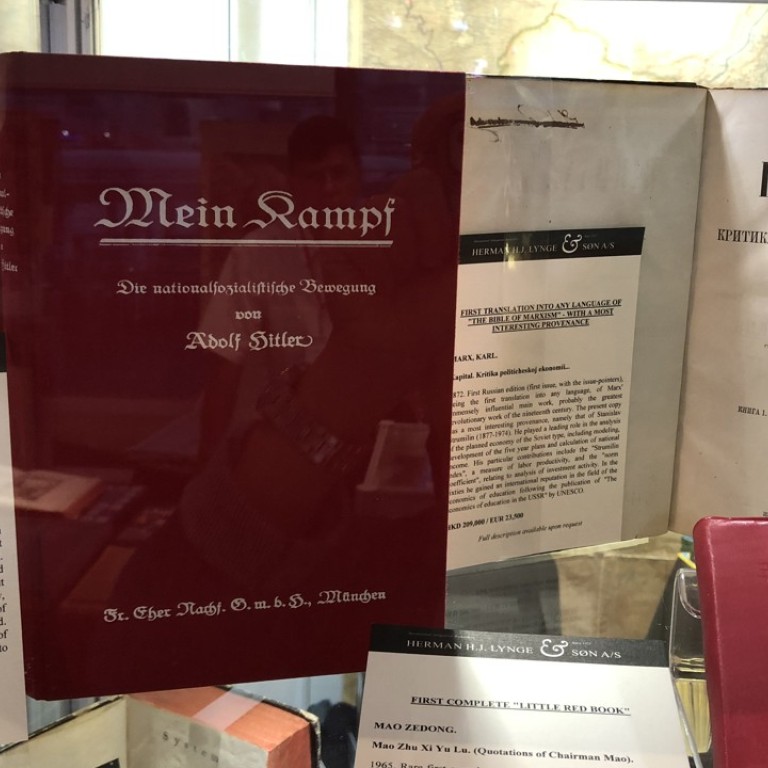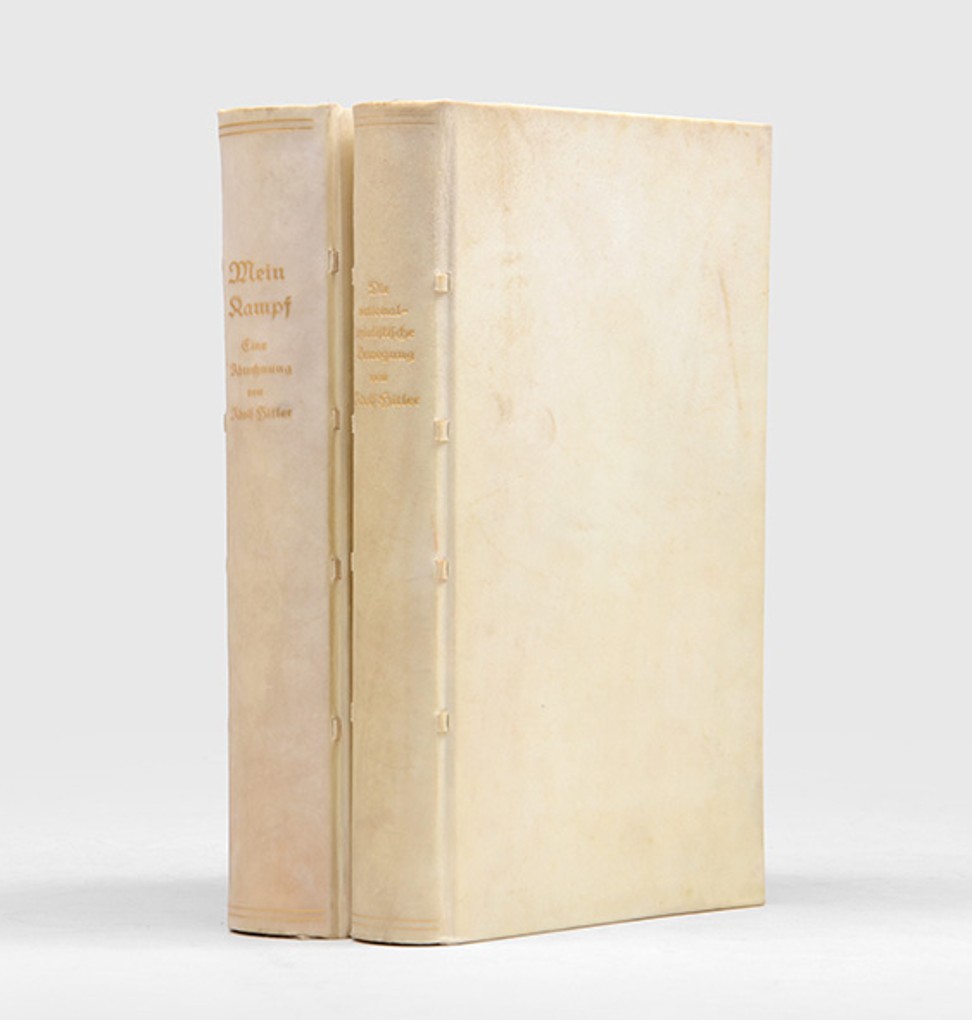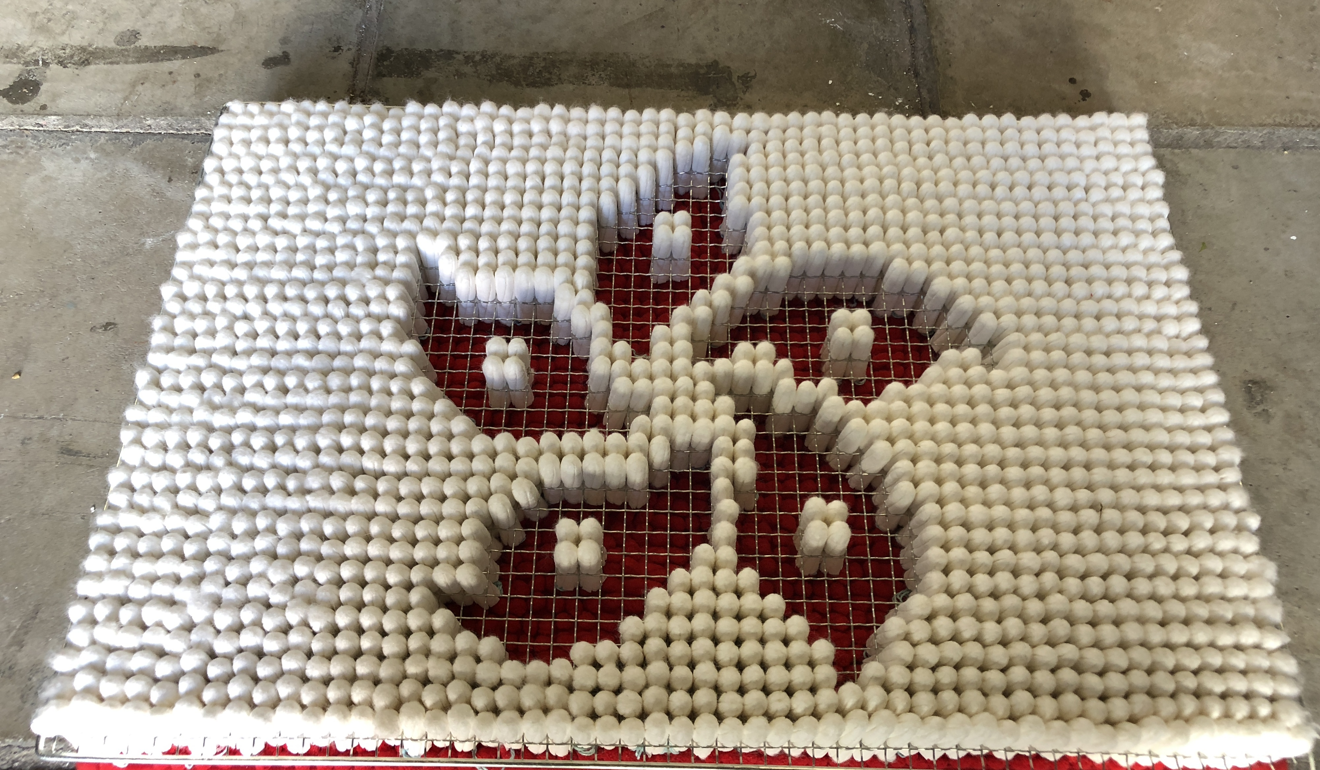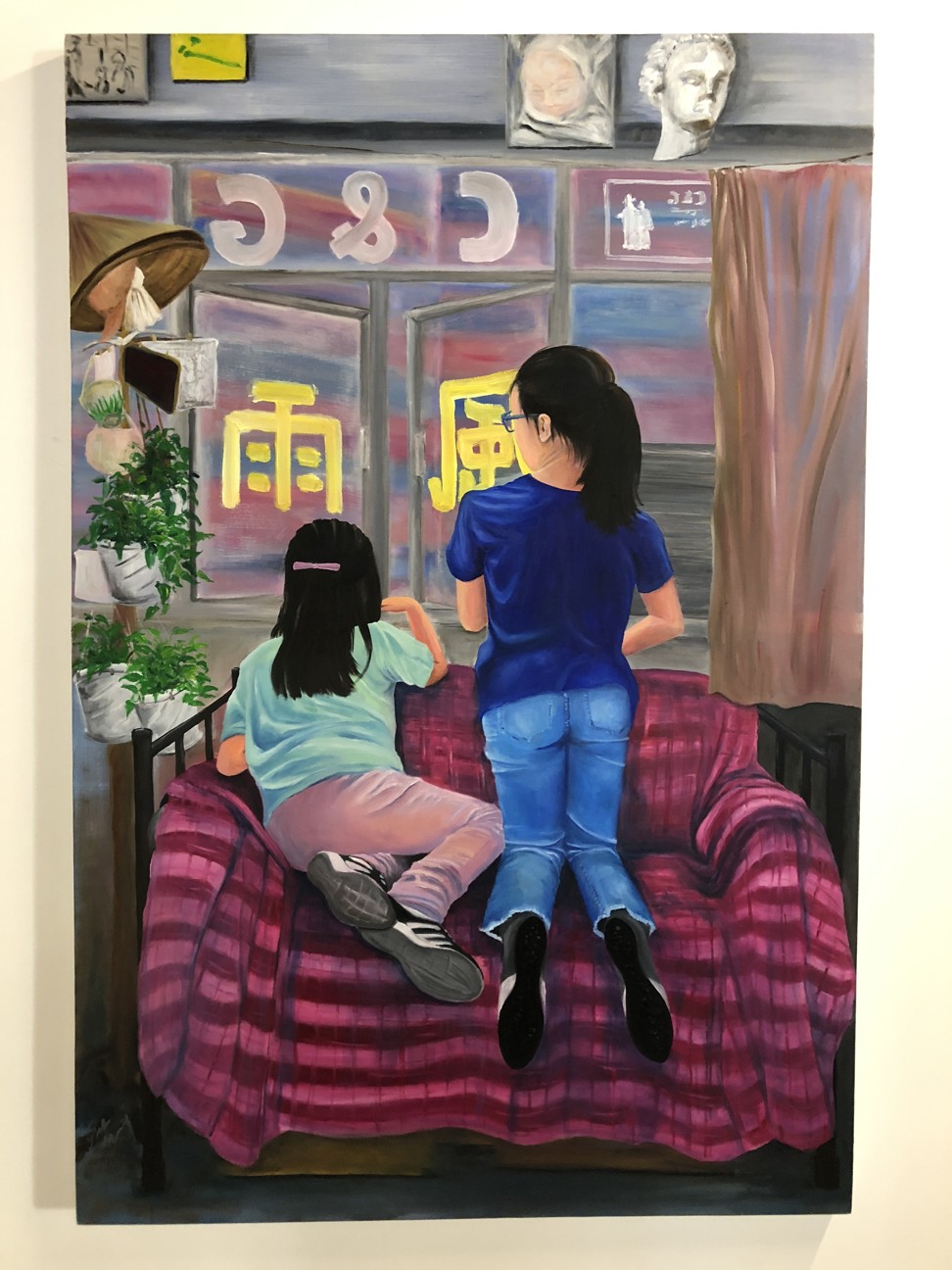
Signed copy of Adolf Hitler’s Mein Kampf on sale at Hong Kong book fair, and Chinese collectors are driving demand
Seeing Adolf Hitler’s autobiography on sale at an antiquarian book fair in Hong Kong raises some uncomfortable questions
Also, ‘Survey’ of local artists dominated by political works
At least three booksellers had early copies of Mein Kampf, Adolf Hitler’s 1925 autobiography, on sale at the recent China in Print antiquarian book fair at the Hong Kong Maritime Museum, in Central.
The Collector happened to be there with a Jewish friend, who, unperturbed by her encounter with a volume that had been signed by the man who sent members of her family to concentration camps, said, “These are collectibles.”
Hong Kong Book Fair draws fans and seekers of forbidden books
In 2015, the year Bavaria’s exclusive rights to the work expired and the state could no longer restrict its circulation, there was a lot of debate over the book’s republication in Germany. Those opposed to it said Mein Kampf had caused harm on a catastrophic scale and its poison remained virulent amid a resurgence of anti-Semitism. Others felt it was an important resource for studying one of the darkest chapters of modern history and that keeping it hidden would elevate Hitler’s megalomaniacal rant by giving it an air of mystique. They also pointed out that the book was already widely available online and in many libraries around the world (Hong Kong public libraries included). Even in Germany, the law never prevented the many pre-1945 copies in existence from being sold in antiquarian bookshops, because they were not covered by the copyright.
The Collector finds the idea of dignifying the book with the term “collectible” repulsive but we can see how in a free market there could be a divorce between the value of the words and the price on the ticket.
Seeing the copies here in Hong Kong, however, raises another question. Do Western booksellers cynically believe that it would be easier to find someone here to pay €185,000 (HK$1.7 million) for “The Nazi bible” (as one booth marketed it at the fair) because there is less sensitivity? After all, Hong Kong public figures often expose their historical ignorance by using casual and inappropriate analogies with the Jews (when playing the victim card), or the Nazis (when describing opponents as evil incarnate).

When we put it to the German dealer sharing the booth where the signed copy was being sold by Austria’s Inlibris, he said the booksellers were the passive party and that “Chinese collectors have specifically requested the title. Maybe you should ask yourself why there is demand for it here.”
Andrea Mazzocchi, a dealer from London’s Bernard Quaritch, observed that the Asian market for rare books was less developed and so collectors just went for well-known titles with an established collector base, which Hitler’s autobiography happens to have.
When it comes to obscure tomes, however, the message inside is deemed relevant. One of the books at his booth, which did not stock Mein Kampf, was probably heading to a European institution rather than a Chinese buyer, according to Mazzocchi.
“It has no value as a book about China and, like others of its era, it has appalling references to the Chinese. But it was written by a Scottish missionary working in China in the late 19th century and is of interest to those researching that particular history,” he said. The book’s title? Pigtails and Chopsticks.
Art imitates life

Forty Hong Kong artists are showing new works at C&G Artpartment’s 11th anniversary exhibition at the Cattle Depot Artist Village, in Ma Tau Kok, making it quite “The Survey” of the local art scene, as the title of the show suggests. Organised by husband-and-wife team Gum Cheng Yee-man and Clara Cheung Ka-lei, co-founders of the independent art space, it seems the artists were selected based on one criterion – that they had to have taken part in a C&G Artpartment exhibition before.
Each artist was asked to create something that can be described using a sentence that includes the words “the most”.

Given that C&G Artpartment often explores the intersections between art and activism, it comes as little surprise to see political works here. Rapper MC Yan used tampons to recreate the Hong Kong flag on a doormat. He calls it The Most of Hong Kong. A painting by Cheung shows her two young daughters in the art space looking out onto the streets, with a partial slogan from the 2014 “umbrella movement” visible on the windows. Called The Question I Wanna Ask My Daughters The MOST In the Future: ‘Do You Blame Me For Not Taking You Out of Hong Kong Back Then?’, it is representative of the prevailing sense of despair among local artists.
The Survey runs at Units 12, 8 & N5, Cattle Depot Artist Village, 63 Ma Tau Kok Road, Kowloon, from Mon-Sun, 12.30pm-7.30pm, until December 23.

